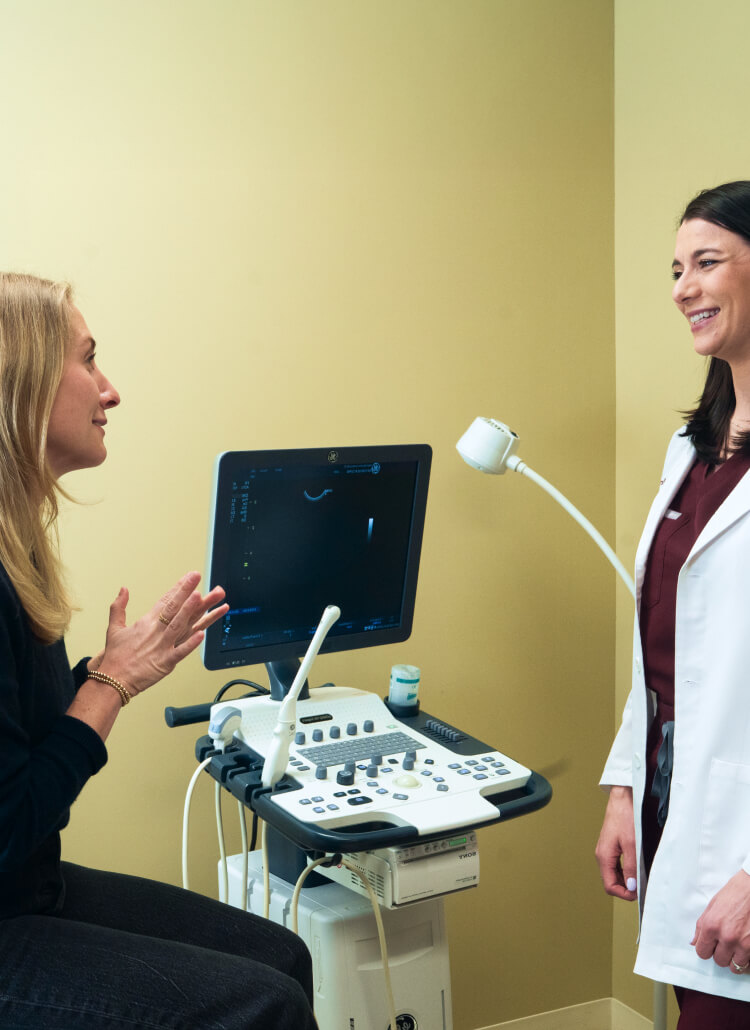Gestational Surrogacy Services for Intended Parents
Gestational surrogacy is a form of third-party reproduction used to help people who cannot carry a pregnancy grow their families. At the Reproductive Science Center of New Jersey (RSCNJ), we can help aspiring parents navigate the surrogacy process, providing fertility expertise and support every step of the way.
What is a gestational surrogate?
A gestational surrogate, also known as a gestational carrier, is needed when a woman cannot carry a healthy pregnancy to term, or for same sex male couples who wish to build their family. The eggs (oocytes) of either the intended parent or an egg donor are inseminated with sperm of the male partner or sperm donor, fertilized, grown to embryos in a Petri dish, and then placed into the gestational carrier’s uterus during an embryo transfer.
The gestational carrier is a healthy woman with a previous successful obstetric history who will carry the pregnancy to term and deliver the child for the intended parents. Patients may present a friend or family member as a potential gestational carrier, or a carrier agency can be used to match them to a candidate. All carriers are rigorously screened to ensure that patients will have an ideal outcome. Additional legal and psychological counseling is required to handle the intricate issues that are involved in these arrangements, both during and after fertility treatment.
Reasons to Use a Surrogate
The reasons a woman may need a gestational carrier may be due to a hysterectomy (removal of uterus), uterine problems, recurrent pregnancy loss, or a severe medical condition that may put the mother and child at risk for severe complications of pregnancy. Usually the eggs of the biological mother are used, although if additional infertility issues exist, donor eggs or sperm may be used (the gestational carrier’s eggs are not used).
At RSCNJ, we'll coordinate the treatment of intended parents and the gestational carrier, and we'll continue to care for the surrogate during the first seven to eight weeks of pregnancy.

Fertility treatments for surrogates and intended parents
Treatment options include doing in vitro fertilization (IVF) using one’s own eggs or eggs from a donor, with sperm from the male partner or a sperm donor. We refer our patients to experienced surrogacy agencies that will help them find their ideal gestational carrier. We also manage the complicated legal process and provide patients with post-delivery support, while our medical staff manages the medical screening and treatment cycle here at our practice. RSCNJ offers the expertise and experience necessary to coordinate these multiple parties to achieve the goal of a healthy pregnancy.




